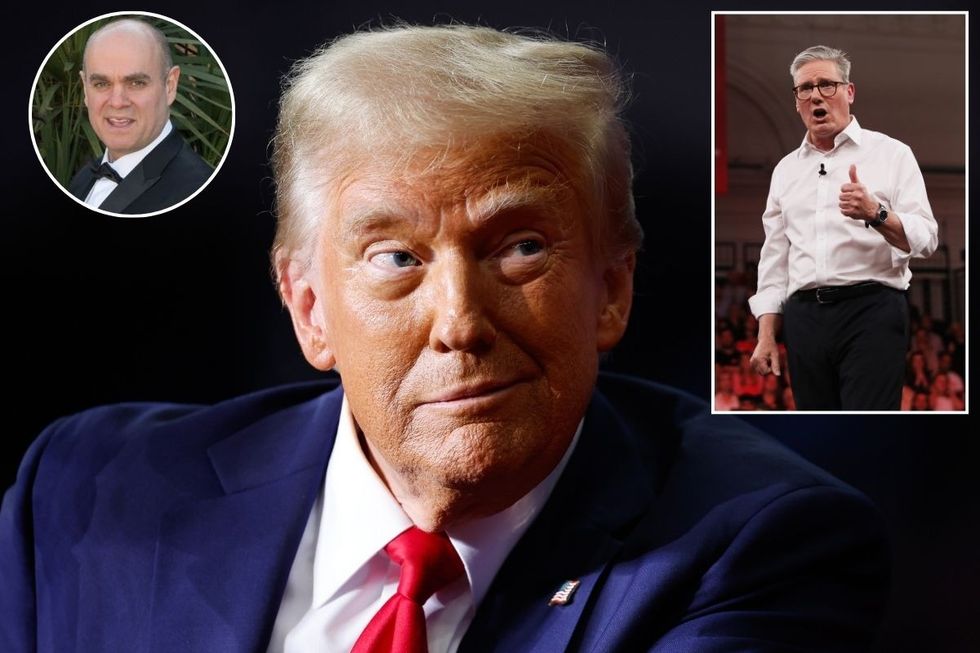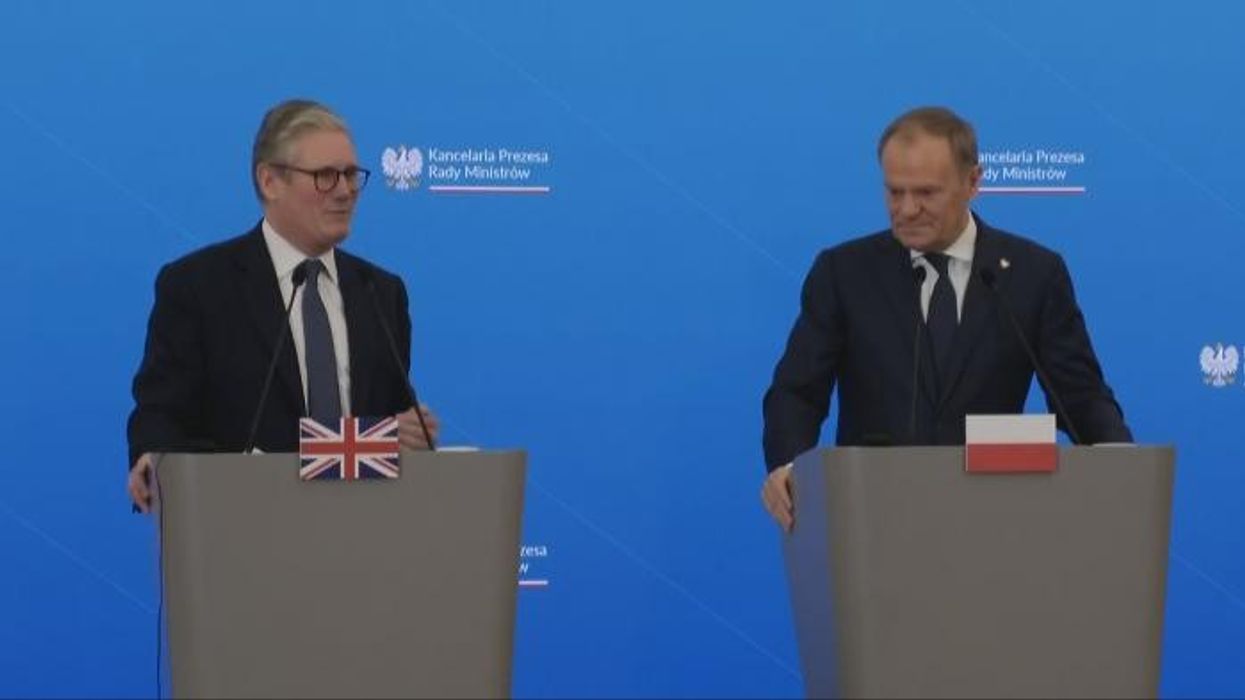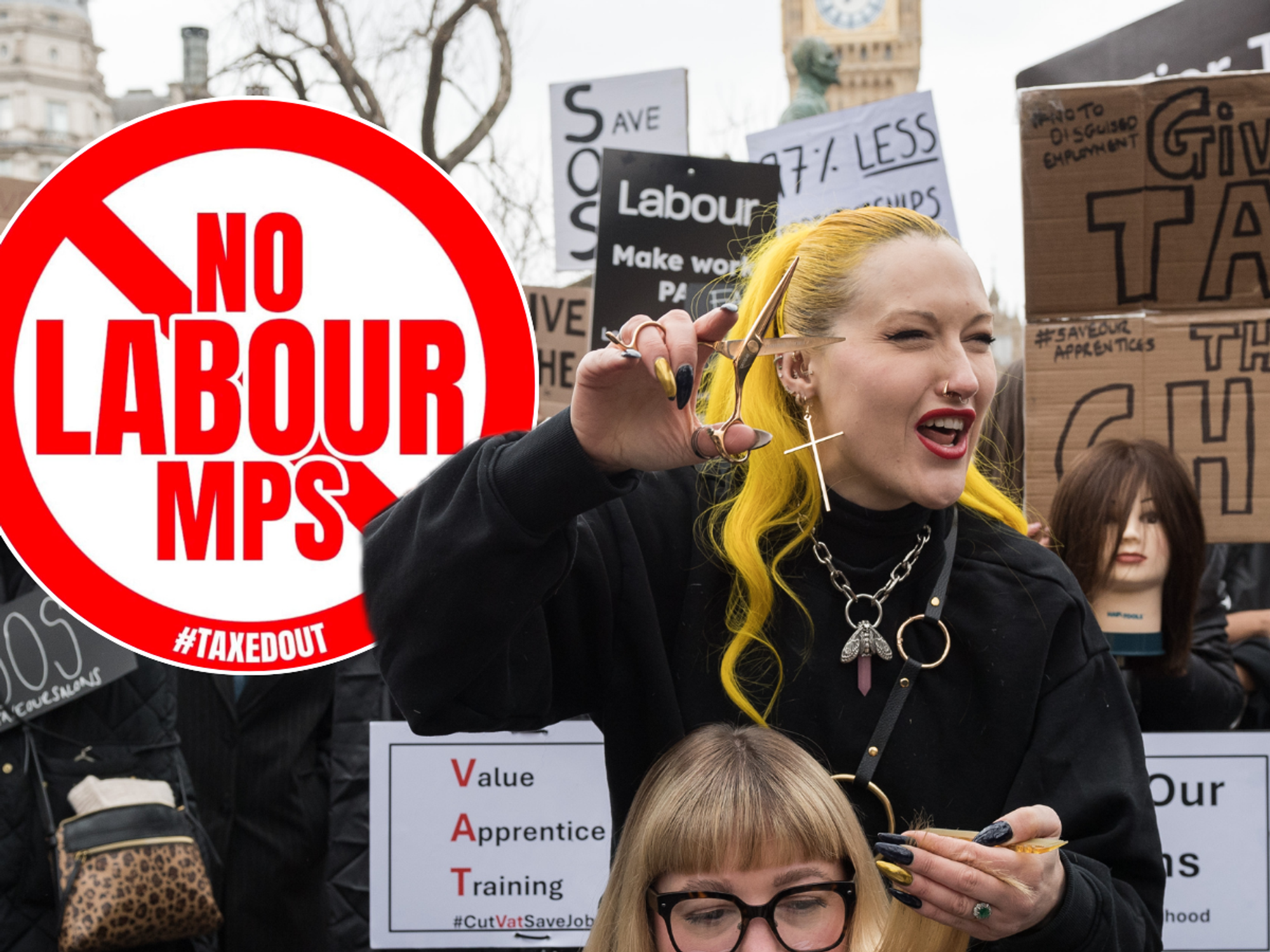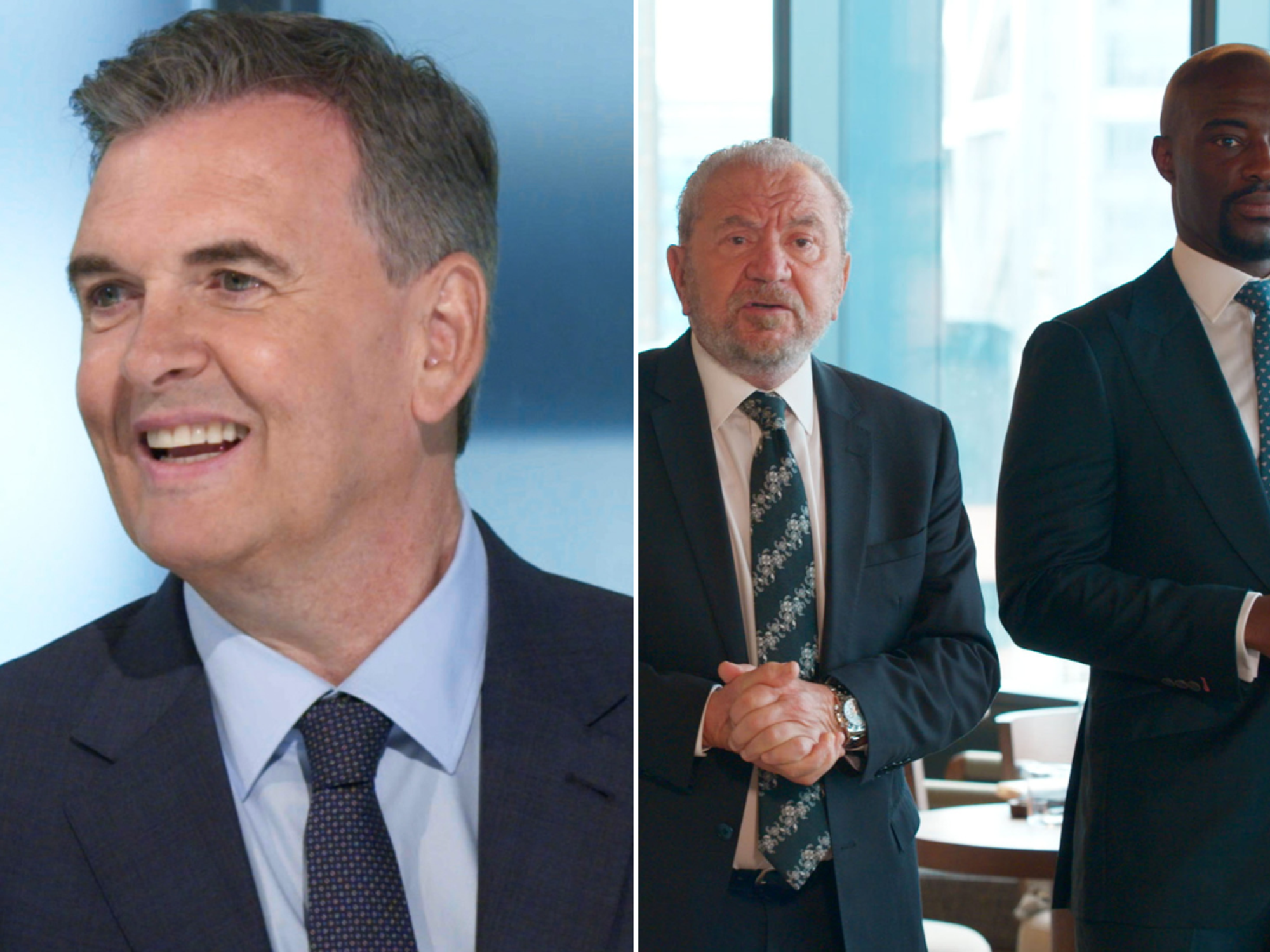From allies to adversaries? The ideological clash between socialist UK and Trump's America - Rael Braverman
Rael Braverman shares this thoughts on the challenge facing Sir Keir Starmer after Donald Trump's inauguration
Don't Miss
Most Read
I am honoured to have accepted an invitation to Donald Trump’s inauguration, marking only the second time in history that a President has secured a non-consecutive term.
The looming prospect of Trump's return to the White House fills me with profound concern for Britain's future. These words about our nation facing an existential crisis are not written lightly but emerge from deep apprehension about what lies ahead.
Since Trump's decisive 2024 victory, taking both the House and the Senate, the geopolitical landscape has palpably shifted, marked by a surge in protectionist rhetoric and a re-evaluation of longstanding alliances. His administration's early signals, including threats over the Gaza hostage situation, signal a return to an assertive, unilateral US foreign policy, which has already begun to unnerve global partners.
Countries like the UK are now reassessing their strategic positions, contemplating increased defence spending or closer ties with Europe, as the reliability of America's commitment to Nato and international cooperation hangs in the balance.

Donald Trump, Keir Starmer and Rael Braverman
|GETTY/GBNEWS
Trump's policies could either fragment or force a reconfiguration of global alliances, with the UK finding itself at a crossroads in this newly turbulent international order. In a Trump 2.0 era, where protectionism and unilateralism could redefine global alliances, the storied "special relationship" between Britain and America, a cornerstone of Anglo-American cooperation for nearly a century, is facing an existential test.
Let's be candid: Britain's bureaucratic machinery, forged in the era of empire, now weighs heavily on the nation's progress. While countries like Argentina and Saudi Arabia have streamlined their governance for contemporary challenges, the UK is ensnared in a labyrinth of Victorian bureaucracy.
This not only stifles the domestic democratic process but also shackles Britain's agility on the global stage, leaving it less responsive and competitive in an ever-evolving international arena. During Trump’s first term, he faced relentless opposition from what he called the "Deep State," alongside subversion from within his ranks by so-called Rinos (Republicans In Name Only), yet he prevailed.
Despite these herculean adversaries, he has a team of staunch allies this time. The likes of JD Vance, Robert F Kennedy Jr, Elon Musk, Kash Patel, Vivek Ramaswamy and Tulsi Gabbard will shape Trump's agenda which is poised to become more audacious. This group, armed with an ideological fervour akin to wielding Excalibur, aims to decisively confront and dismantle those they perceive as threats to American sovereignty, both at home and abroad.
His return to power isn't merely another oscillation in the political cycle; it heralds a seismic shift in the architecture of American governance and will serve as a visceral wake-up call for the UK, highlighting our own political nightmare.
His blueprint for a second term involves radical overhaul, including dismantling their administrative state, asserting greater presidential oversight over independent agencies, and pushing a fiercely nationalist economic policy.
The success or failure of these ambitions will likely be adjudicated in the courts, which represent the Democratic Party’s final bastion against this transformative agenda.

Please write at least 2 paragraphs
On the world stage, the comprehensive transformation of U.S. governance under Trump promises a dramatic confrontation with Westminster. His proposed universal tariffs, ranging from 10 to 20 per cent on all imports to a staggering 60 per cent on Chinese goods, loom as a potential disaster for UK-US trade relations.
Given that the US absorbs over £60billion in UK exports annually, the economic fallout could be severe. Goldman Sachs has already revised downwards its UK growth forecast for 2025 with a potential £21.5billion economic blow.
This grim scenario doesn't yet account for the additional strain from Labour’s tax increases and the adverse effects on small businesses, which will further exacerbate the UK’s economic turmoil.
However, these immediate economic woes veil a more profound issue: Britain's navigation through Trump's second term does not only require diplomatic finesse but also a significant overhaul of its governance structures.
Unfortunately, Britain lacks both these capabilities at present. The likelihood that Labour would voluntarily undertake a DOGE-like initiative to reduce our administrative state is about as likely as Margaret Thatcher being resurrected from the grave.
The UK's governance is mired in a complex web of over 600 departments and agencies. This leaves Britain woefully unprepared to act with the necessary swiftness and strategic acumen demanded by the challenges of this new era.
Consider various parallels: While Starmer and Rayner proudly lead LGBTQ+ marches, Trump will eradicate gender ideology from the US cultural map. Wokism and DEI will be rapid casualties over the pond, while Starmer will be shackled by his party's far-left woke warriors. Elon Musk could define a woman in a heartbeat; our Health Secretary, Wes Streeting, would likely perform linguistic gymnastics to dodge the question.
Trump has positioned himself as a crusader against child sex gangs and human trafficking, advocating for aggressive action. In stark contrast, Labour appears to engage in obfuscation and delay when it comes to forensic investigations, despite a history replete with child sex scandals involving numerous politicians over the decades.
As evidence of recent cover-ups surfaces, the British public's cries of concealment grow louder, underscoring a stark difference in approach and accountability between the two nations. King Charles and Ed Miliband, fervent advocates for stringent Net Zero ideology, represent a unified British stance across political divides.
This stands in sharp opposition to Trump's "Drill Baby Drill" mantra, which champions fossil fuel extraction. This also sets the British Monarchy on a collision course with its American allies, challenging the very fabric of the Anglo-American relationship.
The UK's diplomatic strategy now hinges on the capabilities of David Lammy, our Foreign Secretary, who has publicly labelled Trump as a "woman-hating, neo-Nazi sympathising sociopath’ and a "racist KKK and Nazi sympathiser", tarnishing his entire administration and 77 million supporters who voted for him.
With such inflammatory remarks on record, combined with Lammy's continued support for Ukraine in stark contrast with Trump’s desire to see a rapid resolution to the conflict, diplomatic relations will be fraught with challenges. Add to this the contentious issue of the Chagos Islands, with their significant military value to the US, and one might wonder if Team Starmer is inadvertently or intentionally setting the stage for a clash with America.
The policy chasm between the UK and the Trump-led US is nearly endless, from scepticism towards international organisations like the UN, ICC, WHO and the WEF, to immigration control, deportation policies, the defence of free speech and child vaccination programs. If this scenario were pitched as a script for a Basil Fawlty comedy, the absurdity would have us in stitches.
However, this is our reality, and it's the British populace who will bear an immeasurable cost. These differences not only jeopardise our relationship but could significantly hinder the UK's economic and political recovery.
Historically, the UK and the US have maintained their special relationship through various shifts in power, with this alliance significantly enhancing Britain's global stature. This bond was predicated on Britain's ability to act as a consequential ally.
However, the current UK government's seemingly unyielding embrace of Socialist Globalist ideologies, now risks undermining this very foundation, potentially fracturing a partnership that has long been a pillar of British influence on the world stage.
Platforms like X and now Meta are bypassing traditional news, exposing political hypocrisy and showcasing radical US policy changes, further stirring UK public demand for reform. Musk's posts on grooming gangs perfectly illustrate how these platforms can spark crucial debates, highlighting why the preservation of free speech is so vital.
Here in the UK, we are already seeing the disastrous effects of this Starmer-led Socialist Government. Only six months after Labour secured an extraordinary 174-seat majority gifted to them by the peculiarities of our electoral system, a staggering 72 per cent of UK voters now believe the country is headed in the wrong direction. Further, Starmer's personal appeal has significantly waned with only 27 per cent viewing him favourably.
Labour’s pursuit of ideologically driven policies, which are widely unpopular, has clearly diminished the UK's standing as a reliable ally to America. I harbour little optimism for the survival of the special relationship, but looking ahead to 2029, what remnants will remain of Great Britain? An early ousting of Labour from government seems improbable. The astonishing trajectory of Reform UK's ascent suggests a future where a coalition with the Conservatives becomes increasingly plausible.
These observations lead me to several haunting questions; given the colossal gulf between these diametrically opposed ideologies, what is the likelihood of the special relationship surviving, what are the consequences if it does not and who is going to clean up the inevitable mess?











